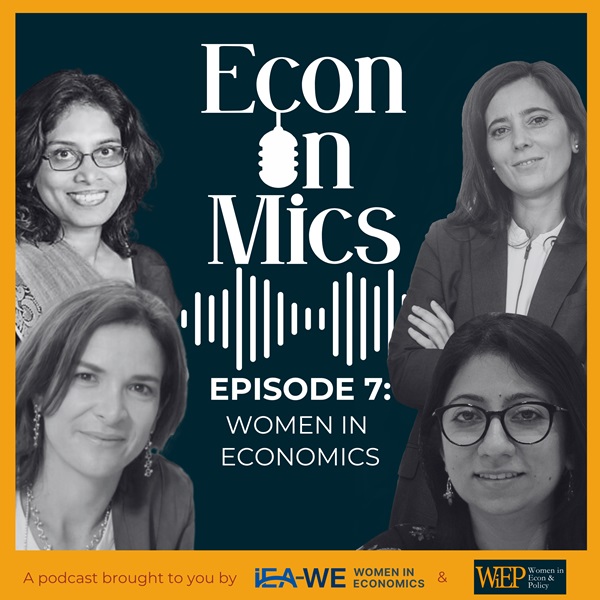Econ-on-Mics Podcast
A joint production of the International Economic Association’s Women in Leadership in Economics initiative and Women in Econ/Policy
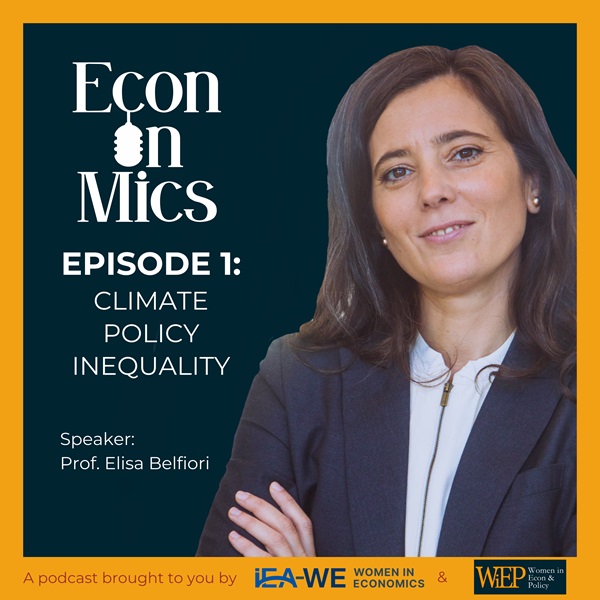
ECON-ON-MICS - Episode 1
This episode features Elisa Belfiori discussing the intersections of Climate, Policy, and Inequality. Interviewed by Maria Alsina-Pujols, Belfiori navigates the complexities of studying climate policy, illuminates the current landscape, and discusses the challenges encountered by developing countries in addressing climate change while fostering development.
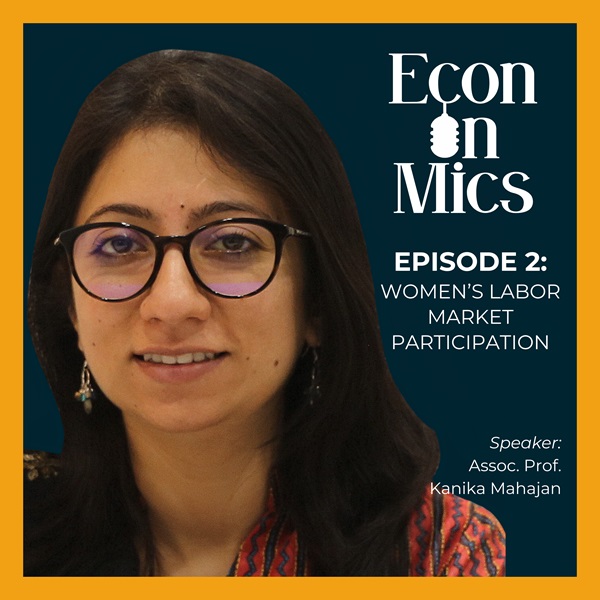
ECON-ON-MICS - Episode 2
In this episode, Kanika Mahajan discusses her work on gender and labour economics. Interviewed by WiEP Director Anahita Karandikar, she touches upon the stagnation of women’s labour force participation in India, exploring both labour supply and demand in light of factors such as social norms and returns to education.
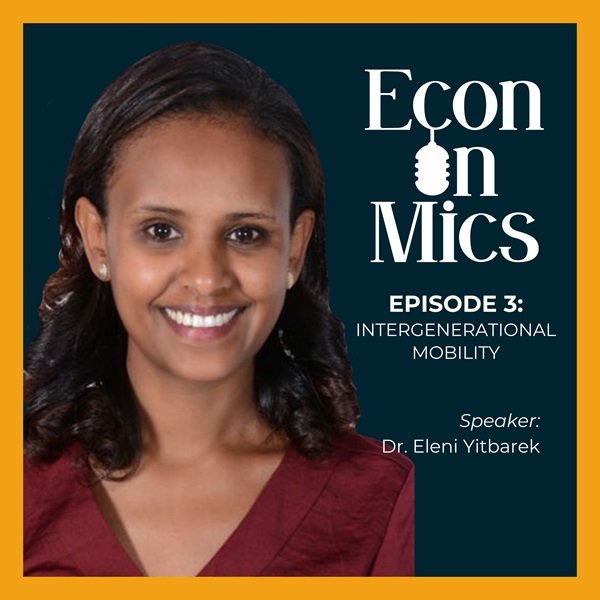
ECON-ON-MICS - Episode 3
In this episode, Eleni Yitbarek is interviewed by Michelle Pleace about her research on intergenerational mobility in sub-Saharan Africa. The first part of their discussion focuses on the association between social and economic indicators of children and that of their parents. They then delve into comparisons between the mobility of sons and daughters, and the part played by parental bias and women’s role in the household.
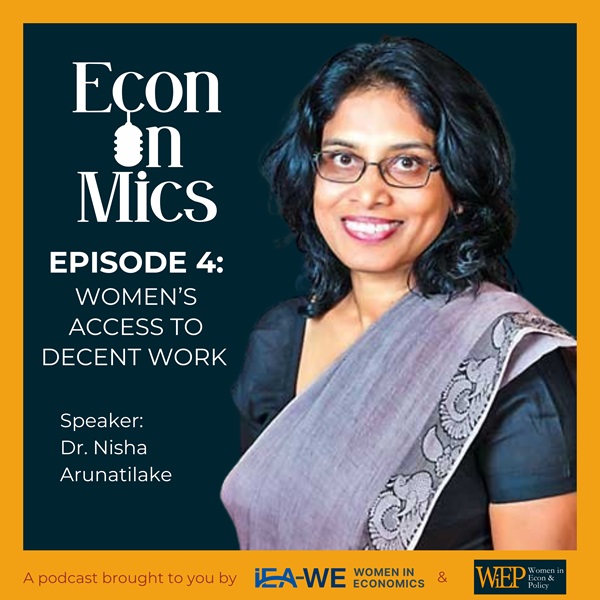
ECON-ON-MICS- Episode 4
Nisha Arunatilake shares her insights on women’s access to decent work in Sri Lanka. In conversation with her colleague Lakmini Fernando, she delves into social and legal barriers – including workplace discrimination, maternity leave, and the poor coverage of labour laws – that might restrict women’s participation in such work. She discusses how providing access to childcare and public transport, as well as introducing legislature which makes workplaces inclusive of women, can be a step towards facilitating female labour force participation.
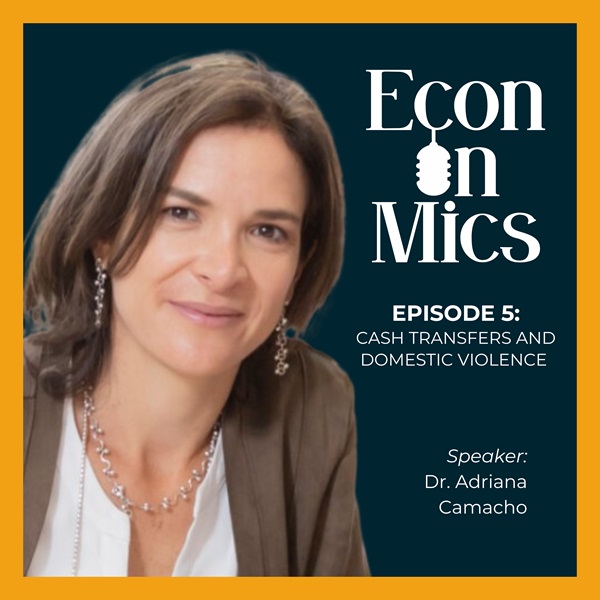
ECON-ON-MICS - Episode 5
In this episode, Adriana Camacho talks about her work on the Colombian cash transfer program and domestic violence. Interviewed by Santiago de la Cadena, she goes over how a lack of resources could trigger domestic violence, and why the timing, expectation and duration of cash transfers matter when it comes to household behaviours. They discuss how such programs could have positive externalities in terms of investment in human capital, and the need for policymakers to primarily address the issue of scarcity.
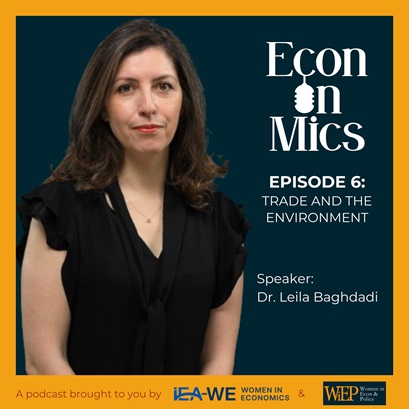
ECON-ON-MICS - Episode 6
In this episode, Leila Baghdadi is joined by Amal Medini to speak about her work on the environmental impact of globalisation, trade and participation in global value chains, as well as her findings on how environmental provisions in trade agreements and tariffs can affect carbon emissions. She also discusses some of her new research on gender equality in the Middle East and North Africa, which explores topics such as the provision of childcare, hiring discrimination against women, and implementing training programs.
